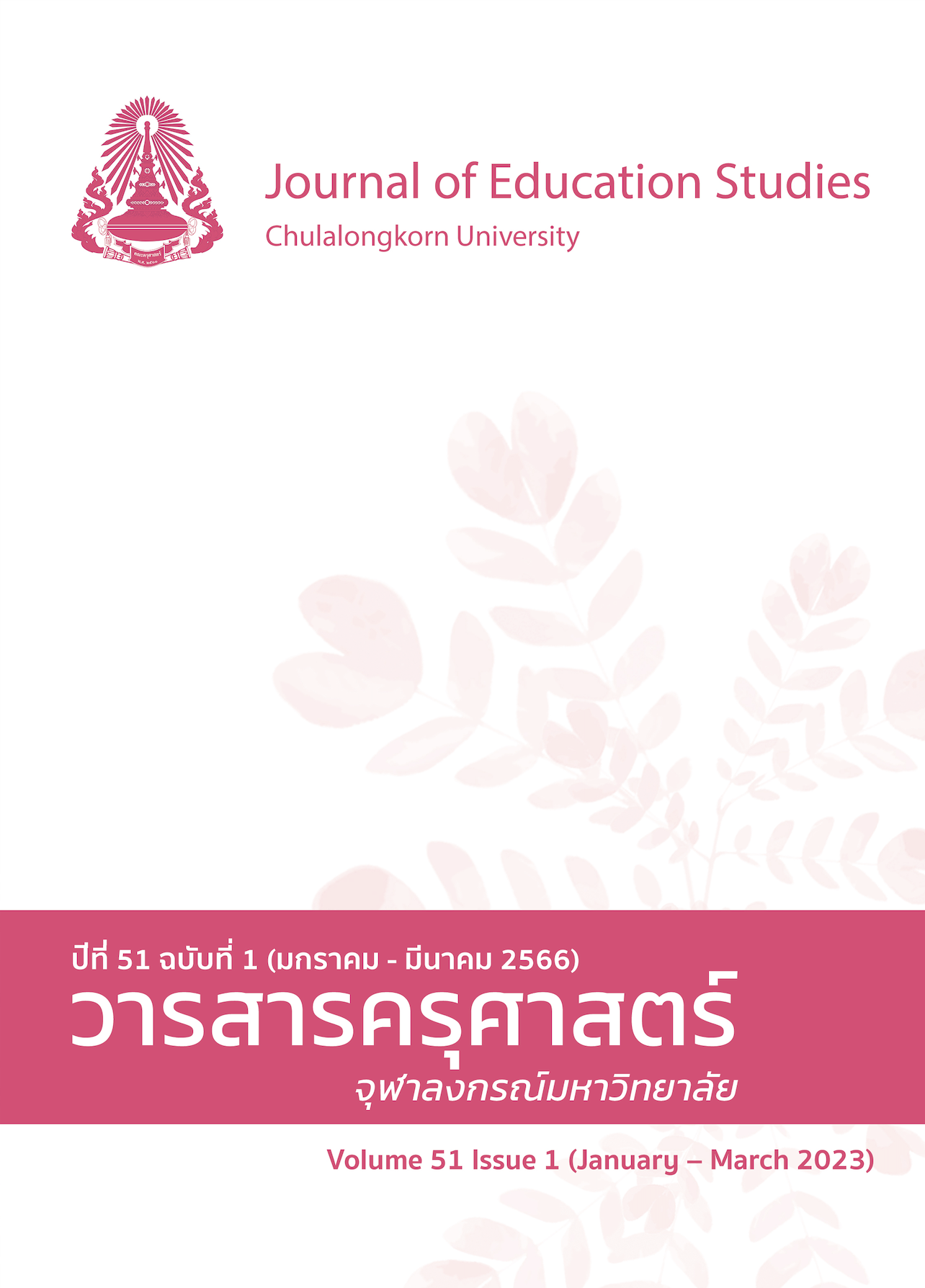Mathematical Knowledge for Teaching: Components and Assessment
DOI:
https://doi.org/10.14456/educu.2023.4Keywords:
mathematical knowledge for teaching, mathematical knowledge, pedagogical content knowledge, teacher assessmentAbstract
Mathematical knowledge for teaching is the mathematical knowledge used to achieve the work of teaching. This article presents the components of mathematical knowledge for teaching, consisting of common content knowledge, specialized content knowledge, horizon content knowledge, knowledge of content and students, knowledge of content and teaching, and knowledge of content and curriculum. Consequently, these components are described in terms of meaning, characteristics, and examples. Specialized content knowledge, or the mathematical knowledge, skills, and processes unique to teaching, is shown through teachers’ behaviors when explaining conceptual and procedural knowledge in mathematics, selecting mathematical representation, and justifying the accuracy and reasonability of students’ mathematical tasks. In addition, some assessment questions of mathematical knowledge for teaching are presented in each of the components; as a result, mathematics teachers and educators can utilize these questions as a guideline for assessing the quality of mathematics teachers as well as developing and preparing preservice teachers.
References
รายการอ้างอิง
ภาษาไทย
ข้อบังคับคุรุสภา ว่าด้วยมาตรฐานวิชาชีพ ฉบับที่ 4 พ.ศ. 2562. (2563, 7 พฤษภาคม). ราชกิจจานุเบกษา.
เล่มที่ 137 ตอนพิเศษ 109 ง. หน้า 10 - 14.
ภาษาอังกฤษ
Ball, D. L., & Bass, H. (2003). Toward a practice-based theory of mathematical knowledge for
teaching. In B. Davis & E. Simmt (Eds.), Proceedings of the 2002 Annual Meeting of
the Canadian Mathematics Education Study Group (pp. 3-14).
Ball, D. L., Thames, M. H., & Phelps, G. (2008). Content knowledge for teaching: What makes it
special?. Journal of Teacher Education, 59, 389 – 407.
Chua, V. G. (2020). A meta-synthesis of studies on deficiencies and affordances in
mathematical knowledge for teaching. Araneta Research Journal (Indagatio), 43, 15 - 21.
Ding, M. (2016). Developing preservice elementary teachers’ specialized content knowledge:
The case of associative property. International Journal of STEM Education, 3(1), 1 - 19.
Hill, H.C., Rowan, B., & Ball, D.L. (2005). Effects of teachers’ mathematical knowledge for
teaching on student achievement. American Educational Research Journal, 42(2), 371 -
Hill, H. C., Blunk, M. L., Charalambous, C. Y., Lewis, J. M., Phelps, G. C., Sleep, L., & Ball, D. L.
(2008). Mathematical knowledge for teaching and the mathematical quality of
instruction: An exploratory study. Cognition and Instruction, 26(4), 430 - 511.
Lai, M. Y., & Clark, J. (2018). Extending the notion of specialized content knowledge:
Proposing constructs for SCK. Mathematics Teacher Education and Development, 20(2),
- 95.
Mosvold, R., & Fauskanger, J. (2014). Teachers’ beliefs about mathematical horizon content
knowledge. International Journal for Mathematics Teaching and Learning, 9(3), 311 –
Petrou, M., & Goulding, M. (2011). Conceptualising teachers’ mathematical knowledge in
teaching. In Mathematical Knowledge in Teaching (pp. 9 - 25). Springer, Dordrecht.
Phelps, G., & Howell, H. (2016). Assessing mathematical knowledge for teaching: The role of
teaching context. The Mathematics Enthusiast, 13(1), 52 - 70 DOI:
Downloads
Published
How to Cite
Issue
Section
License

This work is licensed under a Creative Commons Attribution-NonCommercial-NoDerivatives 4.0 International License.




